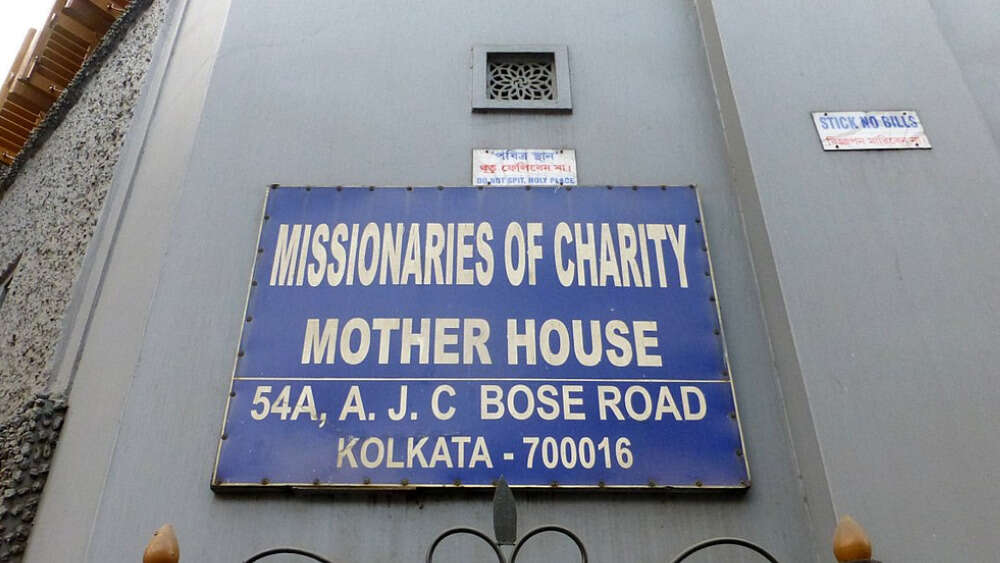Indian government revokes licence for Mother Teresa's charities in India on Christmas Day
Christian churches targeted in attacks
The Indian government announced on Christmas Day that they would not renew a necessary operating licence for Mother Teresa’s Missionaries of Charity (MoC) in West Bengal. The decision puts the work of 3,000 nuns in jeopardy, along with thousands of Indians they minister to.
“Shocked to hear that (at) Christmas, Union Ministry FROZE ALL BANK ACCOUNTS of Mother Teresa’s Missionaries of Charity in India!” Mamata Banerjee, chief minister of West Bengal, posted in a ‘tweet’ on social media platform Twitter on Monday.
India’s brutal campaign to persecute Christians and Muslims exposed in shocking report
Social media's key role in persecution of India's Christians
Sharp rise in religious persecution in India shocks experts
Indian government gives medical supplies to Hindus over Christians
Banerjee is an opposition leader and vocal critic of the Modi government.
“Their 22,000 patients & employees have been left without food & medicines. While the law is paramount, humanitarian efforts must not be compromised,” he tweeted.
The MoC is a Catholic religious congregation established in 1950 by Mother Teresa based in West Bengal, an eastern state. Its work includes caring for the sick, feeding the poor, and running schools, leper colonies and homes for orphans and abandoned children.
The Indian government released a statement saying that, in considering the MoC’s renewal application, “some adverse inputs were noticed”.
“In consideration of these inputs on record, the renewal application of MoC was not approved,” it said, declining to give details when asked.
The MoC clarified in a statement that the government had not frozen its accounts but had disapproved its Foreign Contribution Regulation Act (FCRA) renewal application. Therefore, the charity had asked its centres not to operate any of the (foreign contribution) accounts until the matter was resolved.
India’s controversial FCRA law is purportedly aimed at preventing interference in domestic political debates by entities funded by foreign donations. However, amendments to the law passed in the past decade have increasingly prevented Non-Governmental Organisations (NGOs) from functioning effectively in the country. Most Christian organisations and churches are registered as NGOs.
“It is absolutely systematic and coordinated … with the knowledge and consent and legitimacy of many in local law enforcement [and] many local bureaucrats.” – London School of Economics researchers
The decision to disallow the charity’s licence was just one of many harsh occurrences experienced by Christians and other religious minorities during the Christmas period.
Al Jazeera’s Pavni Mittal, reporting from New Delhi, said Christmas celebrations were disrupted during the weekend and last week, including vandalising a life-size statue of Jesus Christ at Ambala in Haryana, a northern state governed by Modi’s Hindu nationalist BJP.
“This past Christmas, a statue of Jesus Christ was vandalised in northern India and in other parts of the country too. Churches reported Hindu mobs entering and disrupting their services,” Mittal said as she covered a protest against religious attacks in the capital.
Father Patras Mundu, Parish Priest, Holy Redeemer Church, spoke to The Hindu newspaper by phone from Ambala. The priest said the attack took place between 12.30am and 1.40am with two men on a two-wheeler entering the church by jumping over the main gate and damaging the lighting and the decoration inside the premises. Before leaving, the pair hurled bricks and broke the glass case at the entrance to the church, which housed the statue of Jesus Christ.
The priest told the paper there were reports of disruptions of Christmas celebrations at several places in the State. If not linked to those, the desecration incident could be the handiwork of the people with the “same mentality”, he said.
“The agenda seems to disturb the Christian community,” said Pastor Mundu.
Over Christmas, attacks on Christian communities were also reported in Agra in Uttar Pradesh, Assam and Uttar Pradesh.
In recent years, Eternity has reported extensively on the increasing persecution of Christians and Muslims – both religious minorities – in India. These reports show how a combination of official and unofficial (although allegedly government-sanctioned) methods are used to target Christians, often under the guise of preventing Christians from forcibly converting Hindus.
In July, Open Doors UK released Destructive Lies – a report the organisation commissioned researchers at the London School of Economics and Political Science to undertake.
Destructive Lies is a damning account of the “existential threat” to many Indian Christians and Muslims under far-right Hindu and Hindutva organisations that dominates India’s public and political sphere. The report provides a record of faith-based violence and discrimination that stem from the Indian government and permeate its judiciary, law enforcement, local authorities, media and society.
“It is absolutely systematic and coordinated, not only with the knowledge and consent and legitimacy of many in local law enforcement [and] many local bureaucrats, but it goes to the point where even relatives of the victims have been pulled into conspiracies against the victims through networks of the Hindu Far-Right,” researchers said.
Email This Story
Why not send this to a friend?



